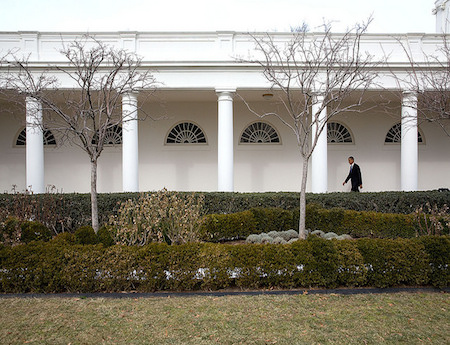No Matter Who's in White House, Relationship With Press Will Get Tougher

The smarter way to stay on top of broadcasting and cable industry. Sign up below
You are now subscribed
Your newsletter sign-up was successful
No matter who wins the White House, attempts to control the press will increase, said a panel of the nation’s top political broadcast journalists at PromaxBDA Station Summit in Las Vegas on Tuesday.
“Every administration has been more anti-press than the previous one and it hasn’t mattered which party,” said Chuck Todd, NBC News political director and moderator of Meet the Press. “The Sunday shows used to be able to book anyone from the Pentagon without permission from the White House. After 9/11, if you want to book someone in the Defense Department, you have to go through the White House press office. Today, if you want to interview someone from the CDC on Zika, you have to go through the White House. This is why it’s important for us to collectively push back – no matter who wins, it will be worse not better.”
“Getting information out of the White House is getting harder and harder for organizations anyway,” said John Dickerson, anchor of CBS News’ Face the Nation and political director of CBS News. “If they shut you off from access to the White House, you aren’t losing what you would have lost if it were 1961.”
A big part of this election year has been the endless stream of political debates, and 14 of the top 15 highest-rated debates of all time occurred within this news cycle, said moderator Frank Biancuzzo, senior VP, group head, Hearst Television. “We’ve never seen them more confrontational and full of personal attacks. It’s great TV, but have the debates lost their purpose?”
“Primary debates are different than general election debates,” said Martha Raddatz, co-anchor of ABC’s This Week with George Stephanopoulos and ABC News chief global affairs correspondent. “Primary debates are tests. You just want to hear the candidates and how they perform in that venue. If they want to go off and talk about small hands and whatever else, that tells the voters something: who are you looking at, would you want this person to be president? I believe there should be some control. When I look back in preparing for those debates and looking back at them afterwards – I’m pretty proud of the way the moderators got information out of the candidates. You can ask the question 53 different ways but at some point the moderator starts looking like a jerk.”
Todd had a different point of view: “There was not a single decent primary debate for the voter. These bigger debates, in which there were 4, 5, 6, 7, 8, 9 candidates – they weren’t of any use to the voters. The forums did more to give voters information. I was much more fulfilled substantively in the forums that I moderated than in the debates.”
Much of the drama of the primary debates still exists in the form of social media, and particularly Twitter, where presumed Republican nominee Donald Trump routinely expresses his opinions.
The smarter way to stay on top of broadcasting and cable industry. Sign up below
“Would we have paid as much attention to Trump if he wasn’t on Twitter?” asked Biancuzzo.
“We all pay attention to Twitter. It’s probably a brilliant marketing strategy and we pay attention to it. What Trump does on Twitter is what he’s doing with the whole campaign. It echoes his whole strategy for campaigning,” said Raddatz.
“If he said it in a fax, we would still pay attention,” said Dickerson. “The rallies that [the networks take] live are on TV not on Twitter. That’s when Trump gets the most unfiltered action to viewers.”
“We know that every Hillary [Clinton] tweet probably went through 30 people, while Trump’s are probably coming from him,” said Todd.
All three also said that regardless of how much they personally participate in social media, it’s an important part of their job now, especially when it comes to reaching socially active millennials.
“I don’t view social media as [something I am pressured to do], I view it as part of my job,” said Todd. “Part of my job taking over Meet the Press was to make sure it wasn’t just a Sunday brand anymore. Whether it’s pressure or not, we’re here to deliver information however people are going to get it. To me these social media platforms are my opportunity to give Meet the Press a daily, hourly brand and at the same time make an impact with people who may never watch the show
“What we’re trying to do, reach millennials, is figure out the story of day, find the most important person to talk about that and find other people who can put that in context,” said Dickerson. “That also turns out to be what we’re doing to reach everyone else.”
Disclosure: Paige Albiniak also serves as editorial director for PromaxBDA, host organization of Station Summit.
Contributing editor Paige Albiniak has been covering the business of television for more than 25 years. She is a longtime contributor to Next TV, Broadcasting + Cable and Multichannel News. She concurrently serves as editorial director for The Global Entertainment Marketing Academy of Arts & Sciences (G.E.M.A.). She has written for such publications as TVNewsCheck, The New York Post, Variety, CBS Watch and more. Albiniak was B+C’s Los Angeles bureau chief from September 2002 to 2004, and an associate editor covering Congress and lobbying for the magazine in Washington, D.C., from January 1997 - September 2002.

